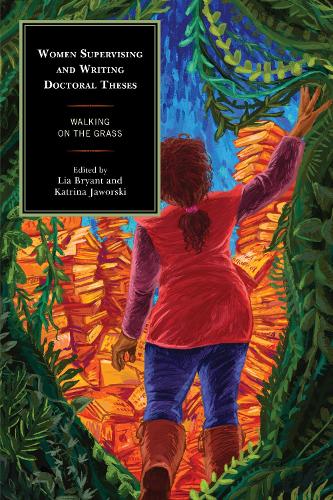
Women Supervising and Writing Doctoral Theses: Walking on the Grass
(Hardback)
Publishing Details
Women Supervising and Writing Doctoral Theses: Walking on the Grass
By (Author) Lia Bryant
Edited by Katrina Jaworski
Contributions by Valerie Adams
Contributions by Christine Beasley
Contributions by Lia Bryant
Contributions by Judith Gill
Contributions by Katrina Jaworski
Contributions by Margaret Rowntree
Contributions by Mary-Helen Ward
Bloomsbury Publishing PLC
Lexington Books
9th April 2015
United States
Classifications
Tertiary Education
Non Fiction
Gender studies: women and girls
378.0082
Physical Properties
Hardback
158
Width 159mm, Height 235mm, Spine 17mm
367g
Description
Walking on the Grass brings to life womens experiences during their doctoral study and the experiences of women who supervise doctoral students. Sensations, reflections, and imaginations emerge through memories, histories, and different ways of narrating academic journeys. This book examines in depth, the emotional and embodied nature of writing, supervising, and inter-subjective learning. It makes visible ethics of care required in that liminal space in which supervisors and doctoral scholars work to shape and give confidence to the becoming academic. The book works through the politics of gender, sexuality, age, class, and ethnicity to understand meanings inherent in doctoral and supervisory relationships, reasons for entering academe, and how academic writing obtains form and content. The significance of the book is its contribution to understanding academic thesis writing as complex emotional and embodied gendered labor rather than an instrumental activity in which to earn the title of Doctor of Philosophy.
Reviews
[T]his book may be of interest to those who want to learn more about womens journeys of transition or transgression into academe, particularly in the Australian context, and to those interested in gender and comparative education studies. * Association for Feminist Anthropology *
Through a series of methodologically innovative and theoretically insightful chapters, authors take the typically overlooked or muted emotional and affective dimensions of doctoral training and place them at the fore. In doing so they produce a rich and unique collection which challenges, complicates and enlivens our understanding of what it means to be a doctoral student or doctoral supervisor in the contemporary neoliberal university. -- Barbara Pini, Griffith University
Students, researchers and teachers will be inspired by this book and by its lively attention to some of the less recognised issues and inequalities faced by women academics at every stage of their career. The book helps to challenge taken for granted and invisible assumptions about the gendering of the academy, opening up spaces for doing things differently and encouraging us to follow Virginia Woolf in walking on the grass. -- Jo Little, University of Exeter
Author Bio
Lia Bryant is associate professor in sociology and social work and director for the Centre for Social Change in the School of Psychology, Social Work and Social Policy, University of South Australia. Katrina Jaworski is lecturer in the School of Communication and International Studies, University of South Australia. She is also a visiting research fellow at the School of History and Politics, University of Adelaide.
